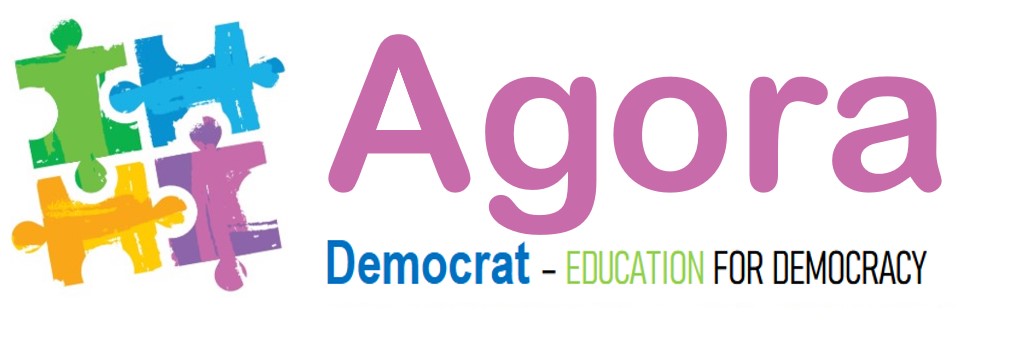17th session of the Democracy Talks, which was presented by Wieger Bakker from Utrecht University. The Democracy Talk was about university life, learning, continuing education, and the university’s educational model. The discussion also touched upon how the university embeds democratic values in its educational curricula.
University’s Shift to Societal Education
Wieger Bakker, a sociologist and chair in society-oriented higher education at Utrecht University, discussed the university’s shift towards more leadership positions in education and the development of continuing education. He highlighted the university’s responsibility to society and students, and the need to reassess their education to include broader societal and personal development aspects. Wieger also mentioned the establishment of four working groups to address academic qualities, society-oriented issues, teaching principles, and organizational aspects. He concluded by stating that university continuing education is a part of their primary process, including bachelor, master, and PhD education.
University’s Educational Vision and Structure
Bakker discussed the educational vision of their research university, emphasizing the importance of interdisciplinary projects and societal challenges. He highlighted the structure of their education, including bachelor and master programs, PhD education, and continuing education. The university’s core educational model focuses on three fields: qualification, socialization, and personal development. Bakker also mentioned the university’s graduate attributes, which include supporting a diverse, democratic, and open society. The implementation of these attributes varies between different faculties and degree programs. Lastly, Bakker emphasized the strong connection between university continuing education and their research, aiming to support alumni and professionals in their development and contribution to social issues.
Utrecht University’s Educational Approach Evolution
Bakker discussed the evolution of Utrecht University’s educational approach, which started around 25 years ago with a shift towards more emphasis on publications, peer reviews, and search for excellence. This led to concerns about neglecting educational quality, prompting the university to initiate different degrees and certifications for university education. This development led to more educational pathways in academic careers, educational leadership programs, and a center for academic teaching and learning. Bakker also mentioned the university’s focus on contributing to societal challenges, particularly in technology changes, sustainability, and youth issues. Diana asked about the starting point for this shift, to which Bakker explained the process of evolution and the importance of balancing research with education.
Evolution of Educational Model Discussed
Bakker discussed the evolution of their educational model at the center for academic teaching and learning, which started around 2.5 years ago. The model initially focused on small-scale, intensive, and activating education, but they reassessed their approach to build common ground and clarify their purpose as a university. Diana agreed, noting the shift from fixed modules to more flexible learning, which promotes critical thinking and responsibility. Karsten raised concerns about the potential for schools and universities to become more hierarchical and business-oriented, potentially undermining democratic structures.
University Professors and Student Participation
A participant and Bakker discussed the preparedness of university professors to teach democracy and the level of student participation in collective decision-making. The participant raised concerns about the readiness of teachers to teach democracy, while Bakker responded that the university encourages broad participation in decision-making processes through various groups and councils. Bakker also mentioned that the university’s continuing education program involves regular updates to the University Council and collects input from various faculties. The discussion ended with Bakker suggesting that courses should appreciate the diversity of students and involve them in decision-making processes to teach democracy effectively.
Developing Critical Teaching Perspectives
Bakker discussed the development of a critical teaching perspective at their university, emphasizing the importance of connecting research subjects with societal challenges. He highlighted the training and qualifications required for university teachers, including a 2-year basic qualification and ongoing follow-up programs. Bakker also mentioned the integration of honors education into all programs, aiming to embed this in regular degree courses. The ultimate goal is to have students actively participate in organizing their programs.
Diverse Backgrounds in University Faculties
Bakker discussed the varying levels of integration of diverse backgrounds in different faculties at the university, noting that it was more visible in social sciences, humanities, and international programs. Bakker also mentioned that the visibility of diverse backgrounds was more challenging in other disciplines.
Addressing Fake News and Interdisciplinarity
Bakker discussed the challenges of tackling fake news and promoting resilience among students at the university level. He mentioned various projects across different faculties addressing this issue, including a training program by the law department to challenge conspiracy theories. Bakker also highlighted the importance of interdisciplinary collaboration, citing examples of joint programs between humanities and sciences, and the development of a program combining humanities and life sciences. He noted that interdisciplinarity is highly valued, especially in addressing complex problems, but also emphasized the need to deliver top disciplinary students for the market. Bakker also shared an example of how interdisciplinary collaboration led to a better understanding of the consequences of urban planning decisions in the context of climate change.
Integrating Values in Dutch Education
Bakker discussed the importance of interdisciplinary courses in the Netherlands, which are privately financed and not allowed with public financing. Bakker emphasized the need for collective processes within institutions to integrate values like intercultural dialogue and citizenship commitment into educational curricula. Bakker also highlighted the importance of institutional entrepreneurs and the need for top-down and bottom-up approaches to engage universities in these activities.
Questions for Reflection
- Why did Utrecht University implement the educational model, and what was the starting point?
- What is needed to integrate competencies for education for democracy (e.g., intercultural dialogue, citizenship commitment) into university curricula?
Democracy Talk and Session Schedule
Diana announced the next Democracy Talk, scheduled for February 12th, featuring Dino Siwek Co-founder of the project Terra Adentro and member of the Gesturing Towards Decolonial Futures collective. Tune in LIVE on YouTube via this link: https://www.youtube.com/@democrathorizon

Leave a Reply